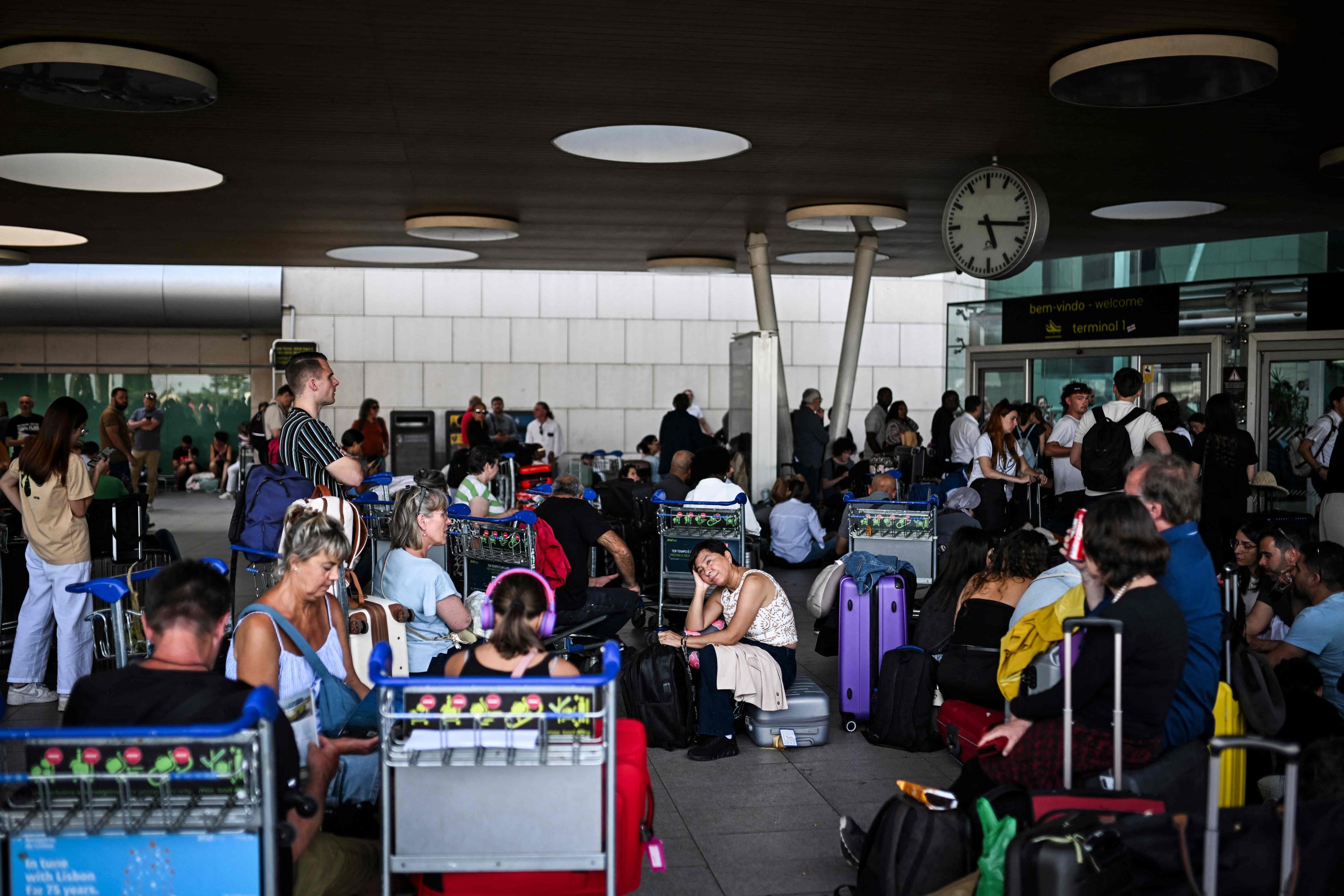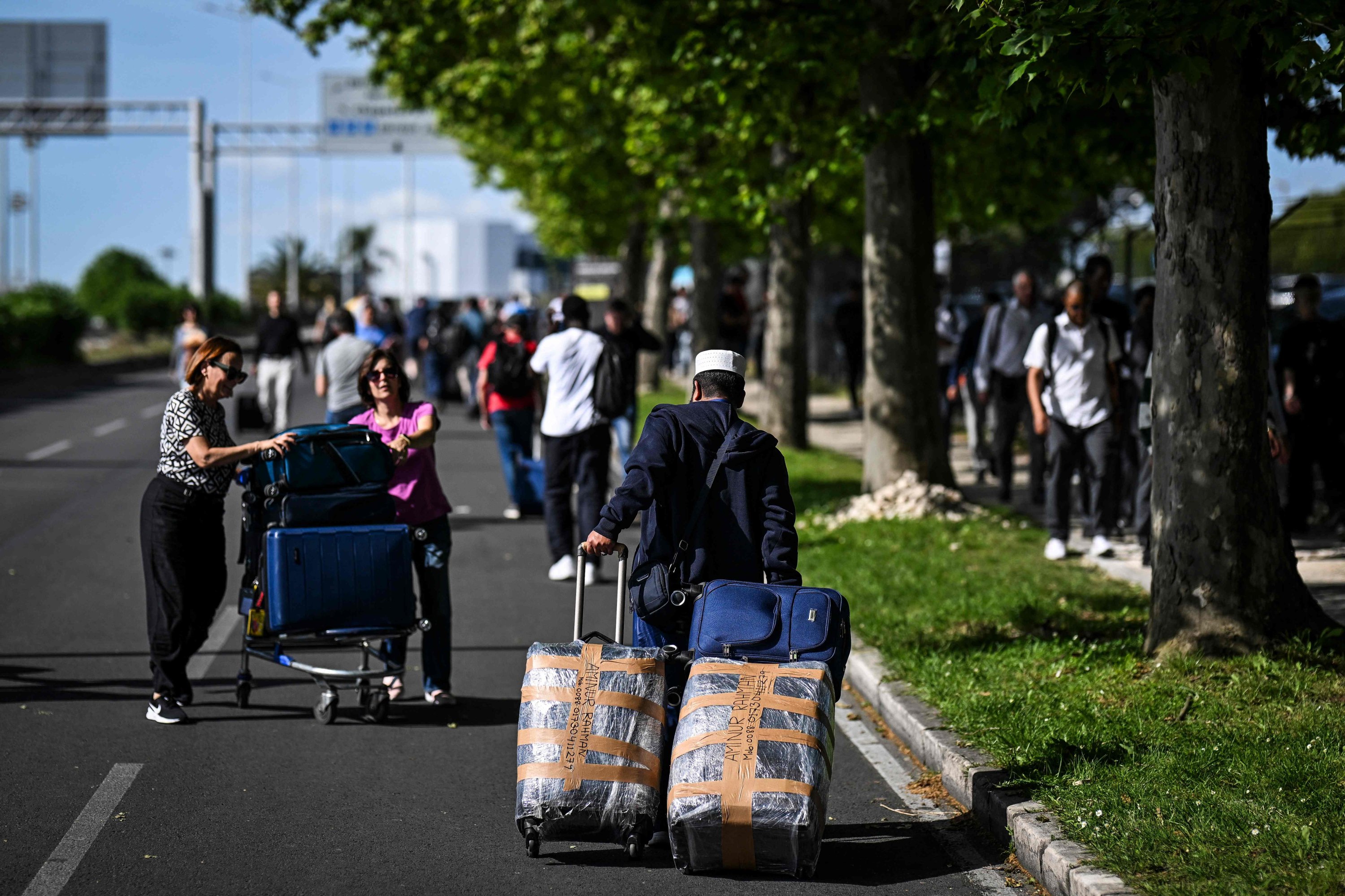© Turkuvaz Haberleşme ve Yayıncılık 2026
Spain and Portugal switched their power back on Tuesday after the worst blackout in their history, though authorities offered little explanation and many questions remained about what caused the sudden outage that grounded flights, paralyzed metro systems, disrupted mobile communications and shut down ATMs across the Iberian Peninsula.
By 7 a.m., more than 99% of energy demand in Spain had been restored, the country's electricity operator Red Electrica said. Portuguese grid operator REN said Tuesday morning all of the 89 power substations were back online since late last night and power had been restored to all 6.4 million customers.
By Tuesday morning, life was returning to normal: schools and offices reopened in Spain, traffic eased along the capital's main arteries and public transport restarted after significant delays.
Spanish authorities did not provide new explanations for what caused the blackout, one of the most serious to ever take place in Europe.
The grid instability caused the Spanish and French electricity interconnection through the Pyrenees mountains to split, resulting in a general collapse of the Spanish system, Red Electrica's chief of operations, Eduardo Prieto, said. Some areas in France suffered brief outages on Monday.
But it was still too early to explain why the outage had happened, Prieto told reporters. "Until we receive the data on the generation aspects we cannot draw conclusions," he said. Red Electrica planned to invest in more interconnections with France to make the system more stable, he added.
In a televised address Monday night, Spanish Prime Minister Pedro Sanchez said the power grid for the Southern European nation of 49 million people lost 15 gigawatts – equivalent to 60% of its national demand – in just five seconds.
"We have never had a complete collapse of the system," Sanchez said. Authorities were still investigating what happened on Tuesday.
Such widespread electric failure has little precedent on the Iberian Peninsula or in Europe.

On Tuesday, Spain's meteorological agency AEMET said that it had not detected any "unusual meteorological or atmospheric phenomena" on Monday, and no sudden temperature fluctuations were recorded at their weather stations.
Portugal's National Cybersecurity Center on Monday threw cold water on feverish speculation about foul play, saying there was no sign that the outage resulted from a cyber attack. European Council President Antonio Costa also said there were "no indications of any cyber attack" Monday afternoon.
Teresa Ribera, an executive vice president of the European Commission, also ruled out sabotage. Nonetheless, the outage "is one of the most serious episodes recorded in Europe in recent times," she said.
Spain is one of Europe's biggest producers of renewable energy, and the blackout sparked debate about whether the volatility of supply from solar or wind made its power systems more vulnerable.
Investment bank RBC said the economic cost of the blackout could range between 2.25 billion euros and 4.5 billion euros, blaming the Spanish government for being too complacent about infrastructure in a system dependent on solar power with little battery storage.
A state of emergency was declared across many Spanish regions on Monday, with the deployment of 30,000 police. Cafes and restaurants counted the cost of lost produce after fridges and freezers were switched off for more than eight hours.
At Spain's largest train stations, droves of travelers waited Tuesday morning to board trains, or to rebook tickets for journeys that were canceled or disrupted on Monday and return home.
At Atocha station in Madrid, hundreds of people stood near screens waiting for updates. Many had spent the night at the station, wrapped in blankets provided by the Red Cross around 1 a.m. Tuesday morning for those who had to wait overnight thanks to canceled trains. Similar scenes played out at Barcelona's Sants station.
By 11 a.m. Tuesday, service on Madrid's metro system was fully restored. In Barcelona, the system was operating normally, but commuter trains were suspended due to "electrical instability," the company that runs the service, Rodalies Catalunya, said on the social media platform X.
In some parts of the country, commuter and mid-distance services were still suspended or running at reduced capacity.

Emergency workers in Spain said they had rescued some 35,000 passengers on Monday, stranded along railways and underground, with the blackout turning sports centers, train stations and airports into makeshift overnight refuges.
On Monday, Ruben Carion was stranded on a commuter train outside Madrid, when he pried the window open and walked to the nearest transit station on foot. Then, he spent the night in the city's Atocha station after his train back to Barcelona was canceled.
The 24-year-old said he chose to wait overnight at the station instead of a hotel so he could stay updated on when he could board a train home, describing his experience as "pure chaos."
In Portugal, the government said hospitals were back up and running, airports were operational albeit with delays in Lisbon, while the capital's metro was restarting operations and trains were running.
Marc Ferracci, the French industry minister, told RTL radio station on Tuesday that France was better prepared to prevent blackouts such as the one suffered by Spain and Portugal and that the impact in France had been "minimal."
Energy systems can be vulnerable when combining intermittent renewable power such as wind and solar with traditional sources such as gas and nuclear plants, said Victor Becerra, a professor of power systems engineering at the University of Portsmouth.
"Whatever the cause, a major failure in one area can place sudden pressure on neighboring systems, causing protective shutdowns to prevent further damage," Becerra said.
More than 75% of the energy Spain was using at the time of the outage came from renewable sources, according to Red Electrica data.
John Kemp, an energy analyst and public policy specialist, said finding clear root causes for the sequence of failures that contributed to the blackout could take investigators several months.
"The region has one of the world’s highest penetrations of renewable generation from wind and solar, so the blackout will be a case study of how renewable generators impact reliability as well as restarting after widespread failure," he said.
